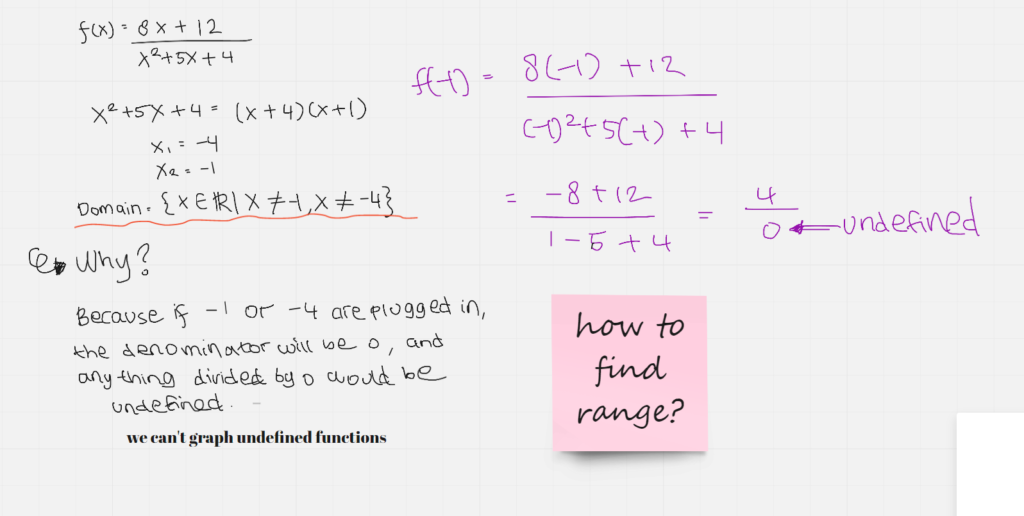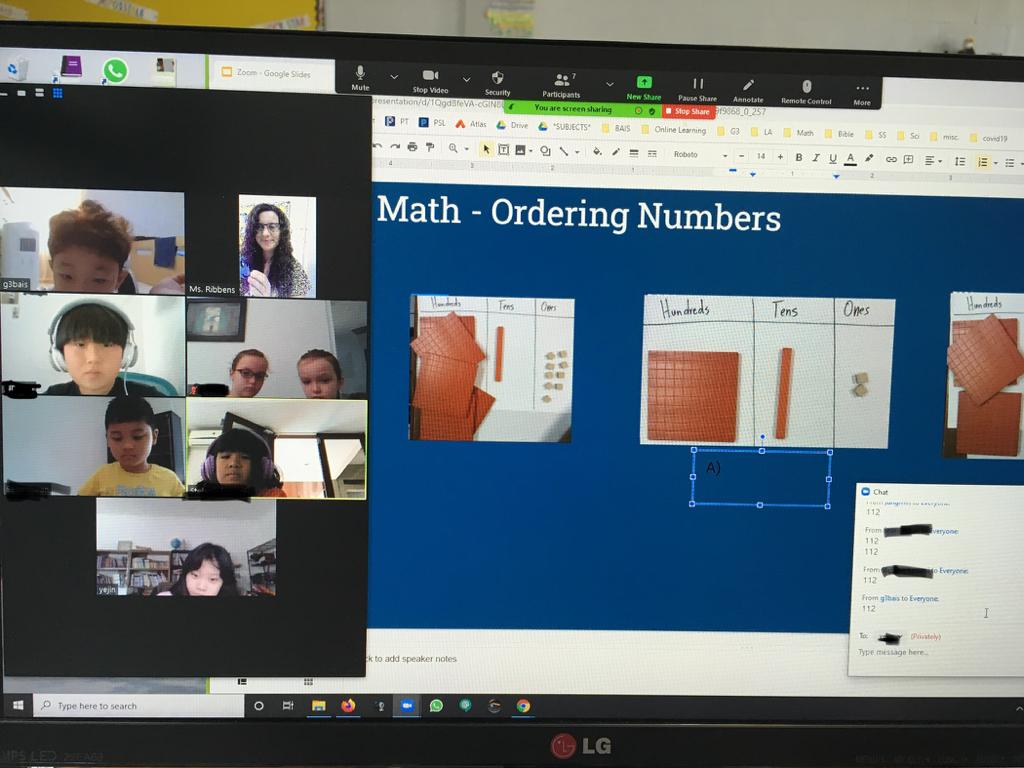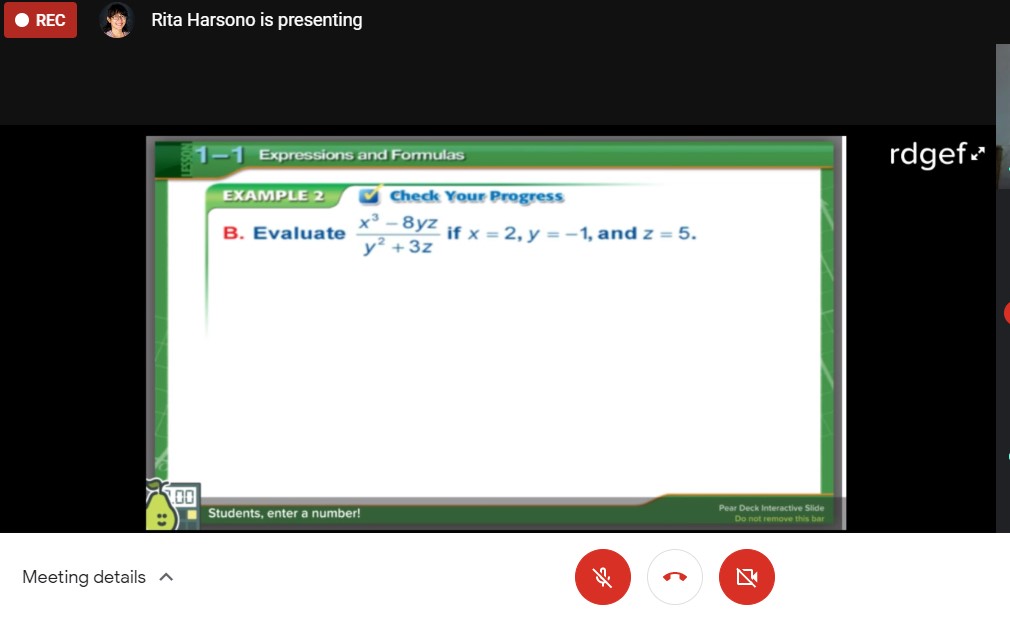Just today I started using a collaborative whiteboard with a few of my math classes. It’s a tool that lets my students connect and communicate with each other, without interrupting me over audio; one of my pet peeves about online teaching is that the “only one person speaks at a time” rule is so strictly enforced. They’re able to write notes, scribble pictures, post search results, pass along ideas, all while listening to me talk about the topic of the day.

A collaborative math discussion. We had audio running in Google Meet to talk about the questions posted, and they were commenting on each other’s work in real time during the class. This is from Trig Functions, looking at defining Domain of a Function.
This interactive communication could change my view of math completely. I’m still thinking this through, but I might finish this year convinced that math is not logic as much as it is a language. It’s a tool for communicating about logic. The reason I switched to whiteboard discussions online is I realized that most of my students have the ability to chat on the sides during class already; and that sending work home expecting them to do it individually both cuts off support for them, but also provides temptation for them to talk to each other about the math they’re learning. Last week, I decided to not push against the desire to connect which we all feel much more now with COVID, but rather to use it.
Through the online interacting, I’m planning to see if I can identify student skills and topics learned by watching how they talk to each other about a math question I ask the class as a whole. Who’s confident enough to speak first? Who thinks (or writes) the whole thing down on paper, but only posts the answer on the shared page? Who takes the time to explain it, or takes the risk to ask a risky question? In short, how are they communicating about the math they’re faced with, and what can that tell me about their familiarity with it as a language?
I’m treating this as an experimental case next week, because it only worked in a few, more talkative classes last year. There were still some that preferred to work things out alone and post their own work. But maybe, just maybe, being separated more these days will make the silent thinkers want to speak up just a bit more about the math they see.

More interactive whiteboard 
3rd Grade Place Value 
Algebra using PearDeck





